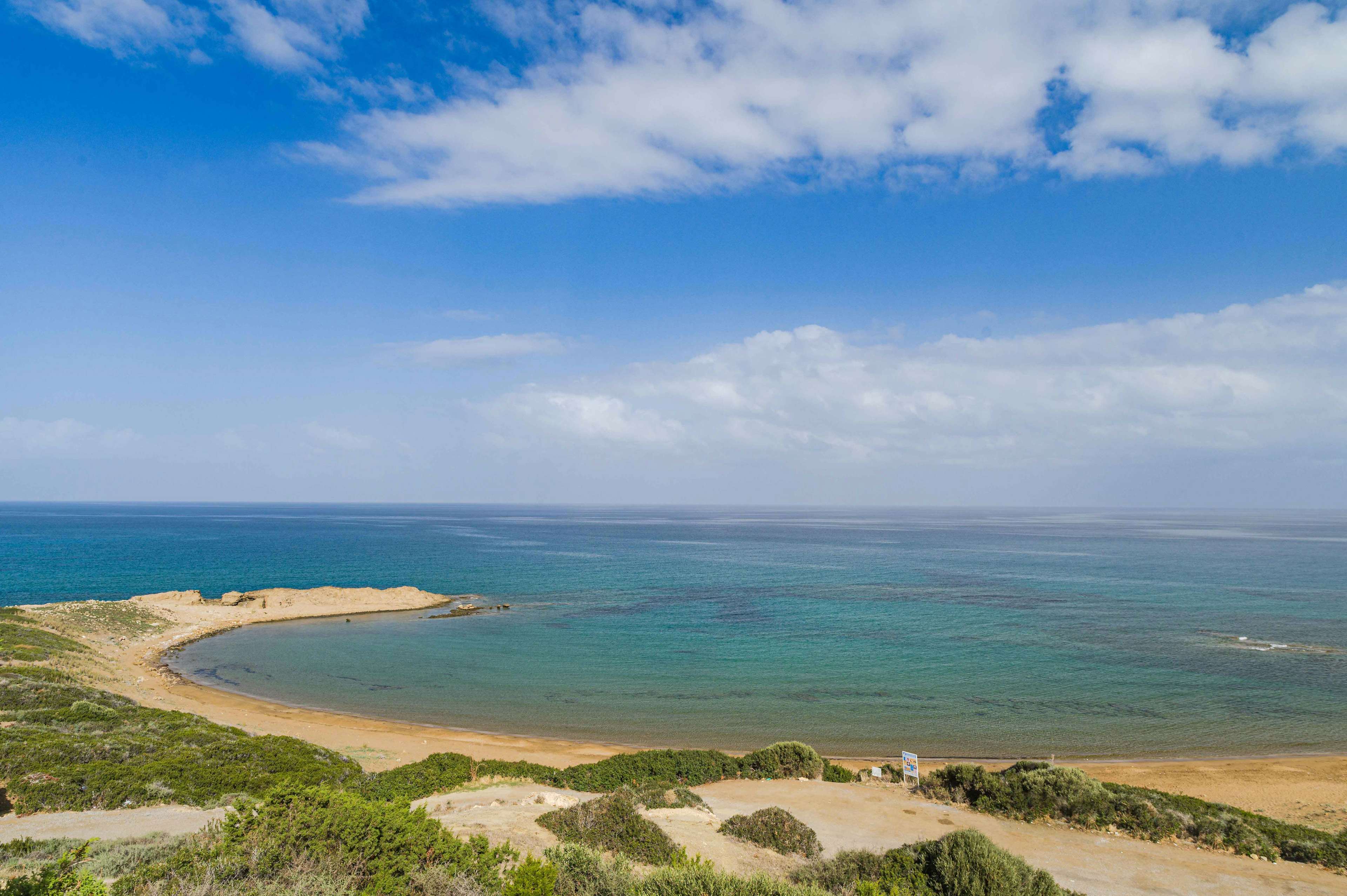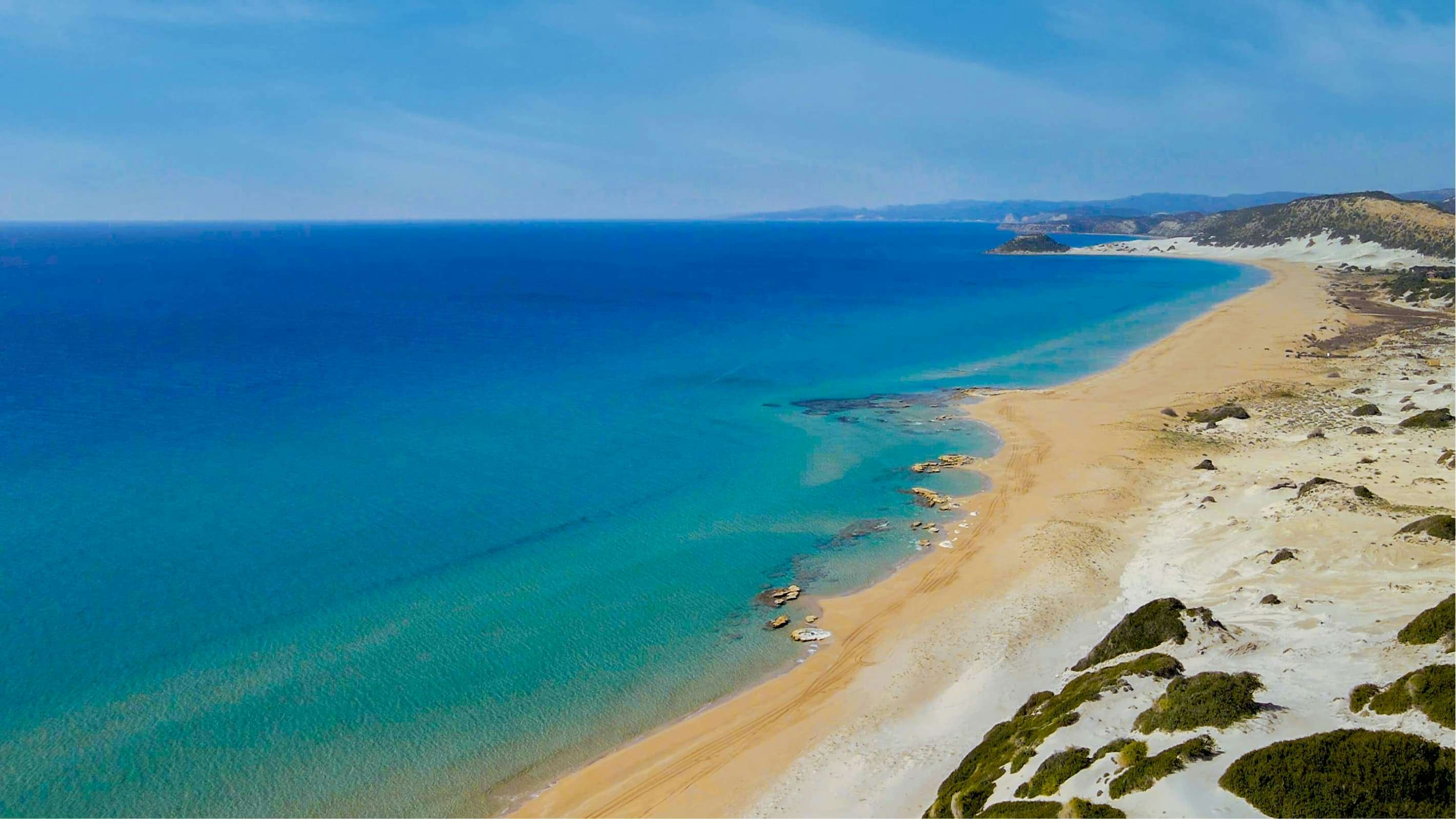

Experiencing the Cyprus Climate
Imagine a paradise in the Mediterranean, where the weather in Cyprus is a constant topic of delight. This paradise is Cyprus, an island nation known for its stunning beaches, captivating landscapes, and rich history, which continue to charm tourists and expatriates from all corners of the globe.
If Cyprus is on your travel itinerary or even on your list of potential new homes, getting a grasp on the island's weather is key. In this article, we'll explore what the climate in Cyprus has to offer, particularly in the months of Cyprus weather April and Cyprus weather October.
Getting to Know the Cyprus Climate
Cyprus is blessed with a Mediterranean climate, marked by long, hot, dry summers, complemented by mild, wet winters. This means the island is bathed in sunlight throughout the year, making it an always-ready destination for travellers.

The Charm of Cyprus Weather in April
Cyprus welcomes spring in April. As winter fades and the island begins to bloom, it's an ideal time to visit. The average temperature in April ranges from a comfortable 19°C to 23°C (66°F to 73°F), offering warmth without the intense heat of summer.
The island is dressed in vibrant wildflowers, and the sea starts to warm up, inviting swimmers. Evenings in April can be slightly cooler, with temperatures falling to around 11°C to 13°C (52°F to 55°F), so packing a light jacket or sweater for the cooler nights is a smart move.
The Sunny Appeal of Cyprus Weather in October
On the other hand, if you prefer more moderate temperatures and fewer crowds, October is an excellent time to explore Cyprus. The island enjoys glorious sunshine during this month.
The average daytime temperature in October ranges from 25°C to 28°C (77°F to 82°F), perfect for basking in the sun or engaging in outdoor activities. The nights in October are relatively warmer compared to April, with temperatures between 16°C to 19°C (61°F to 66°F), making it comfortable for evening strolls along the coast or enjoying a meal under the stars.

Beach Life in Cyprus
One of the main attractions of Cyprus is its pristine beaches. The island boasts an impressive 69 Blue Flag beaches, celebrated for their cleanliness and water quality.
These sandy retreats are perfect for sunbathing, swimming, and water sports, and the pleasant weather in both April and October enhances the experience.
Year-Round Mediterranean Cuisine
Cyprus is not just about its climate; it's also renowned for its mouth-watering cuisine. Whether you visit in April or October, you'll have the opportunity to taste authentic Mediterranean dishes.
Fresh seafood, juicy kebabs, halloumi cheese, and delicious mezze platters are just a few of the culinary delights waiting for you.
Regional Weather Variations in Cyprus
The weather in Cyprus can differ slightly depending on the region. The coast is generally warmer and drier than the inland areas. The Troodos Mountains are the coldest and wettest part of Cyprus, with snow falling in the winter months.
Here's a more detailed breakdown of the weather in Cyprus by region:
Paphos: Paphos is a sought-after tourist spot on the west coast of Cyprus. The weather in Paphos is typically mild and sunny, with average temperatures ranging from 16°C (61°F) in January to 30°C (86°F) in August.
Limassol: Limassol is a major city on the south coast of Cyprus. The weather in Limassol mirrors Paphos, with mild, sunny winters and hot, dry summers.
Larnaca: Larnaca, the main airport city in Cyprus, generally experiences slightly warmer weather than Paphos and Limassol, with average temperatures ranging from 17°C (63°F) in January to 31°C (88°F) in August.
Nicosia: Nicosia, the capital of Cyprus, is situated in the inland part of the island. The weather in Nicosia is hotter and drier than on the coast, with average temperatures ranging from 15°C (59°F) in January to 33°C (91°F) in August.
Kyrenia: A mild weather prevails in Kyrenia, the tourism capital of the country, as in the rest of Cyprus. While average temperatures are around 17°C in winter, they can rise to 35°C in summer.
Troodos Mountains: The Troodos Mountains are the highest mountain range in Cyprus. The weather in the Troodos Mountains is cooler and wetter than on the coast, with snowfall during winter months.

Discovering the Island's Rich History and Culture
Cyprus offers more than just beaches and food. The island is steeped in history and culture. Whether you're visiting archaeological sites, ancient monasteries, or charming villages, the weather in both April and October allows you to comfortably explore the island's rich heritage.
Handy Tips for Your Visit
Sunscreen: Regardless of when you visit, always apply sunscreen. The Cypriot sun can be intense, and protecting your skin is crucial. Use sunscreen with an SPF of 30 or higher on all exposed skin.
Hydration: Keep your hydration levels up by drinking plenty of water and fluids. Avoid caffeine and alcohol, as these can lead to dehydration. Seek shade during the hottest part of the day (11 a.m. to 3 p.m.).
Swimwear: In April, the sea may still be a bit chilly for some, so consider a wetsuit if you're planning to spend a lot of time in the water. In October, the sea is warmer and perfect for swimming.
Comfortable Shoes: Whether you're exploring archaeological sites or taking a stroll along the beach, comfortable walking shoes are essential.
Local Experiences: Engage with the local culture by participating in traditional activities like wine tasting, olive picking, or cultural dance classes.
Local Products: Don't forget to bring home some of the island's renowned products, such as halloumi, Cypriot wine, and handmade crafts.
Climate Change and Its Impact on Cyprus
With growing concerns about climate change, it's important to consider how it might affect the weather in Cyprus. Rising global temperatures and changing weather patterns are impacting the world, and Cyprus is no exception.
Cyprus is experiencing milder winters and longer, hotter summers. These changes can affect the island's ecosystems, including its flora and fauna, and potentially its agriculture. Water resources are also under pressure due to increasing evaporation rates and shifting precipitation patterns.
Beyond this, the tourism industry in Cyprus, which heavily relies on the weather, may face challenges as extreme weather events become more frequent. Keeping these factors in mind when planning your trips and staying informed about the island's changing climate is critical.

Cyprus: A Paradise All Year Round
Cyprus is a paradise for lovers of sun, sea, and culture, all year round. Whether in sunny April or warm October, expect a fantastic experience with diverse landscapes, stunning beaches, delectable cuisine, and a rich history.
If you're planning your next getaway or considering relocation, Cyprus, with its exceptional weather, friendly locals, and a plethora of activities, is a Mediterranean jewel for everyone. So, get ready to pack your bags and explore Cyprus in all its splendour!


